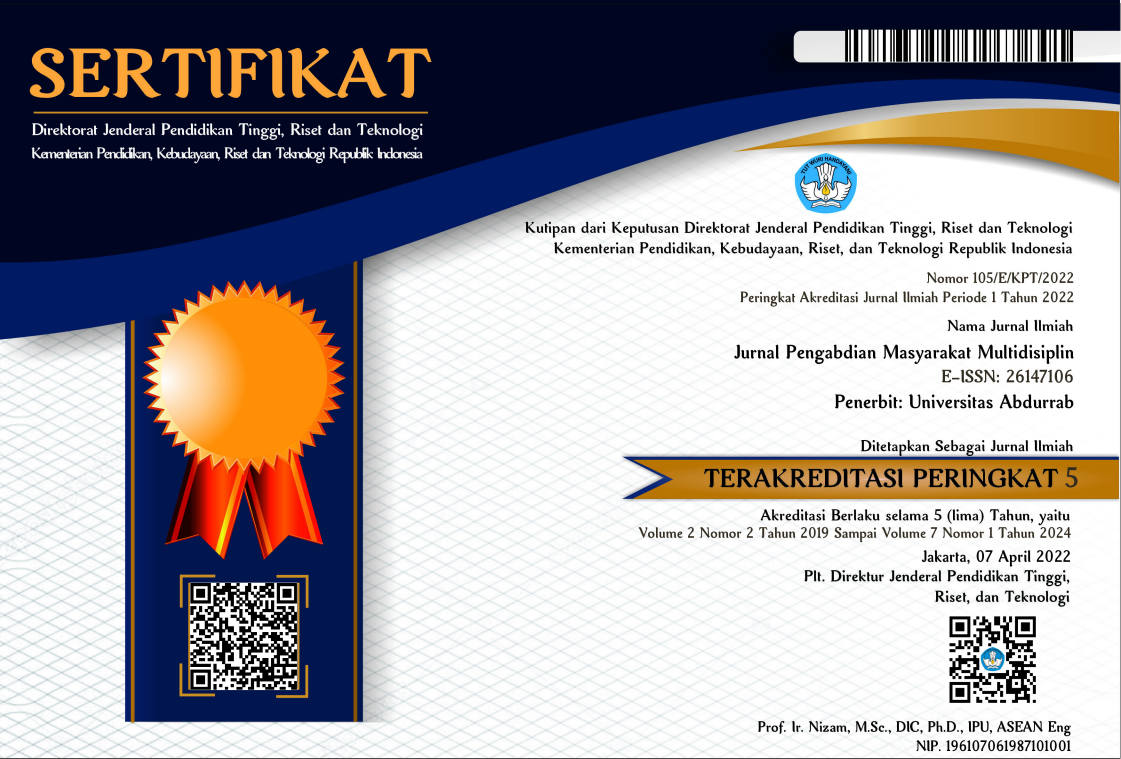EDUKASI TEKNOLOGI INFORMASI DALAM KONSEP SMART VILLAGE DI DESA SEI LEMBU MAKMUR KABUPATEN KAMPAR
DOI:
https://doi.org/10.36341/jpm.v5i3.2492Keywords:
smart, village, Sei Lambu, EducationAbstract
The village area is a location far from the city which has many shortcomings, especially information technology communication. The best development and the fastest and most efficient way of developing information communication is to build from the bottom up at the village level. Every village in Indonesia must be independent and be able to develop themselves to obtain and share information. For this reason, the government has begun to implement a system of development and development from the outskirts or the lowest level, which is called the village and then to the urban area. To support this development, the government created the Smart Village information technology concept. The Smart Village concept has an agenda to strengthen rural management through the use of information and communication technology. In this regard, the Government continues to innovate and be creative to support the Smart Village program. Sei Lembu Makmur Village, Kampar Regency, Riau Province is a village located approximately 45 kilometers from the provincial capital. For this reason, information technology education and data communication through Smart Villages are needed so that village governments can develop Smart Villages independently and community leaders and agencies in the local village area can accept Smart Village development directly in the village.
Downloads
Downloads
Published
How to Cite
Issue
Section
License
1. Copyright of all journal manuscripts is held by the Jurnal Pengabdian Masyarakat Multidisiplin.Formal legal provisions to access digital articles of electronic journal are subject to the provision of the Creative
2. Commons Attribution-ShareAlike license (CC BY-NC-SA), which means that Jurnal Pengabdian Masyarakat Multidisiplin is rightful to keep, transfer media/format, manage in the form of databases, maintain, and
3. publish articles.Published manuscripts both printed and electronic are open access for educational, research, and library purposes. Additionally, the editorial board is not responsible for any violations of copyright law.
licensed under a Creative Commons Attribution-ShareAlike 4.0 International License.







